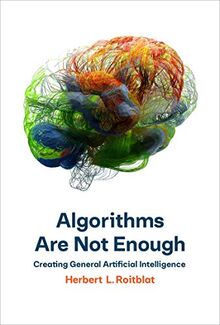
Why a new approach is needed in the quest for general artificial intelligence.
Since the inception of artificial intelligence, we have been warned about the imminent arrival of computational systems that can replicate human thought processes. Before we know it, computers will become so intelligent that humans will be lucky to kept as pets. And yet, although artificial intelligence has become increasingly sophisticated—with such achievements as driverless cars and humanless chess-playing—computer science has not yet created general artificial intelligence. In Algorithms Are Not Enough, Herbert Roitblat explains how artificial general intelligence may be possible and why a robopocalypse is neither imminent, nor likely.
Existing artificial intelligence, Roitblat shows, has been limited to solving path problems, in which the entire problem consists of navigating a path of choices—finding specific solutions to well-structured problems. Human problem-solving, on the other hand, includes problems that consist of ill-structured situations, including the design of problem-solving paths themselves. These are insight problems, and insight is an essential part of intelligence that has not been addressed by computer science. Roitblat draws on cognitive science, including psychology, philosophy, and history, to identify the essential features of intelligence needed to achieve general artificial intelligence.
Roitblat describes current computational approaches to intelligence, including the Turing Test, machine learning, and neural networks. He identifies building blocks of natural intelligence, including perception, analogy, ambiguity, common sense, and creativity. General intelligence can create new representations to solve new problems, but current computational intelligence cannot. The human brain, like the computer, uses algorithms; but general intelligence, he argues, is more than algorithmic processes.